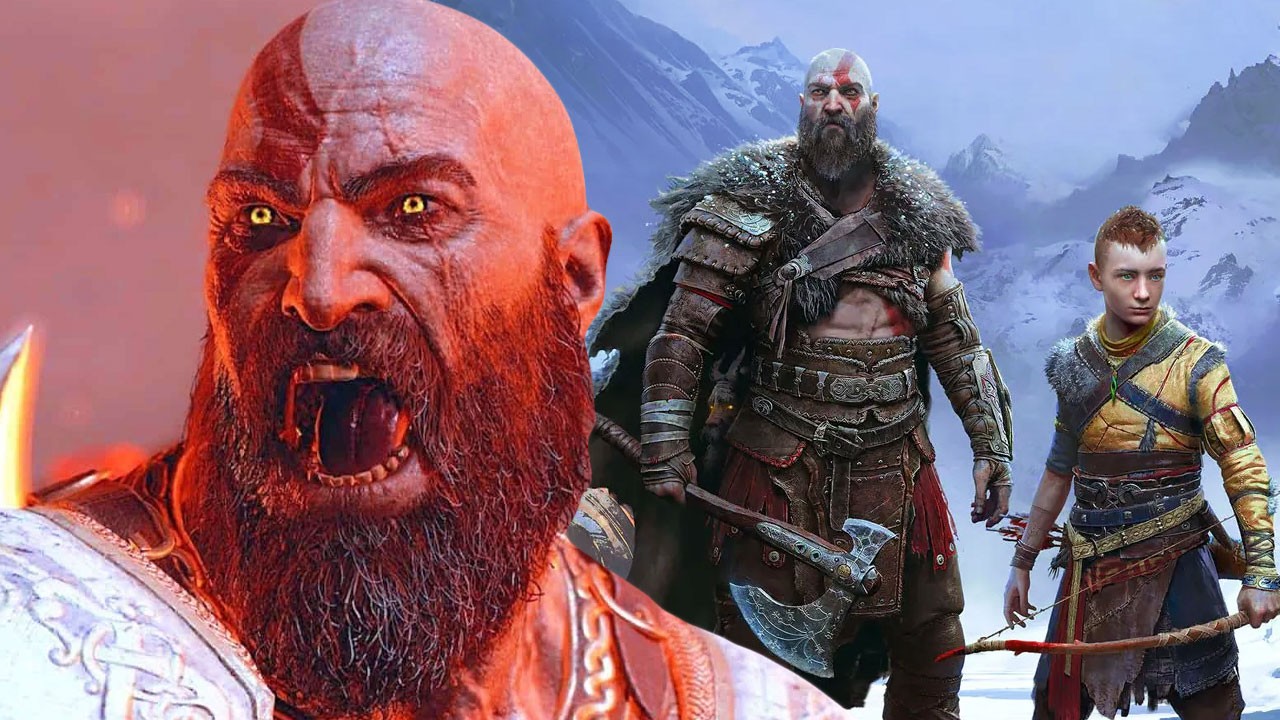In the grand tapestry of gaming, few sagas have etched themselves into the annals of myth and legend quite like the God of War series. A tale that began with a vengeful Spartan on a quest for retribution against the gods of Olympus has evolved into an epic odyssey spanning eras, pantheons, and the very essence of what it means to be a god.
As we embark on this monumental journey, we tread the blood-soaked path of Kratos, from the chaotic rage of ancient Greece to the frozen landscapes of Norse mythology. Join us as we unravel the divine hierarchy, clash with titans, and challenge the fates themselves in the definitive ranking of every God of War game. It’s time to don the Blades of Chaos, ascend Mount Olympus, and venture into realms unknown as we explore the legacy of Kratos, the Ghost of Sparta.
9. God of War: Betrayal (2007)
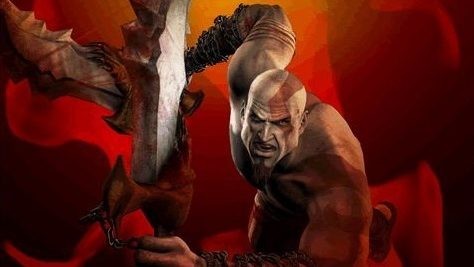
Set between the events of the original God of War (2005) and God of War II (2007), God of War: Betrayal follows Kratos in his relentless pursuit of retribution against the gods of Olympus. As he battles through hordes of mythical creatures, he discovers a conspiracy that involves the manipulation of his fate by the gods themselves. Developed for mobile phones successfully translates the intense action and visceral combat of the console series onto a smaller screen. The game offers a satisfying blend of platforming, puzzle-solving, and brutal combat, maintaining the signature hack-and-slash gameplay that defines the God of War franchise.
While the graphics and scale are understandably scaled down for mobile devices, the game manages to capture the essence of Kratos’ character and the mythology-rich world he inhabits. The story, while not as expansive as the mainline titles, provides an engaging narrative that adds depth to Kratos’ journey. Overall, God of War: Betrayal is a commendable mobile adaptation that delivers a satisfying God of War experience for fans on the go.
8. God of War: Ascension (2013)
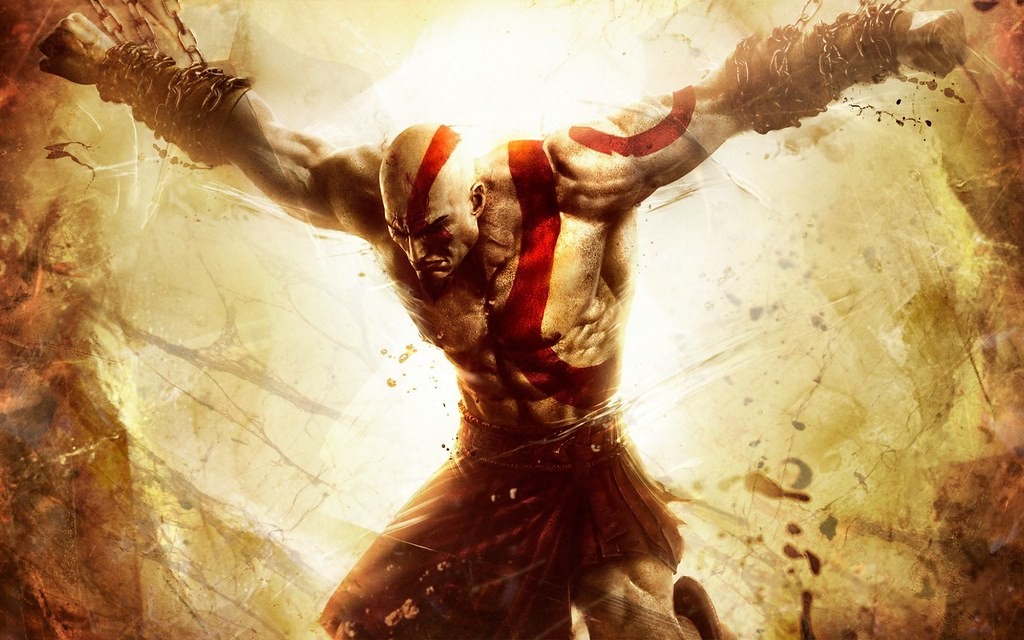
A prequel to the series, offering insight into the origins of Kratos’ torment. The story unfolds before he becomes the Ghost of Sparta, depicting his struggles against the Furies, vengeful deities punishing those who break their oaths. Kratos, imprisoned and tormented, seeks to sever his bond with Ares, the God of War, and escape his relentless pursuers. Throughout the journey, players witness the evolution of Kratos from a mere mortal to a force destined for divine vengeance.
Ascension faced the challenging task of living up to its critically acclaimed predecessors. While the game maintained the series’ trademark visceral combat, jaw-dropping visuals, and epic scale, it received mixed reviews. The single-player campaign was praised for its stunning set pieces, inventive puzzles, and boss battles. However, some critics noted that it didn’t introduce enough innovation to distinguish itself from earlier titles. The multiplayer component was a notable addition, offering a unique experience in the God of War universe. Despite mixed reception, Ascension is a solid entry that further explores Kratos’ tragic backstory and delivers the intense action the series is known.
7. God of War: Ghost of Sparta (2010)
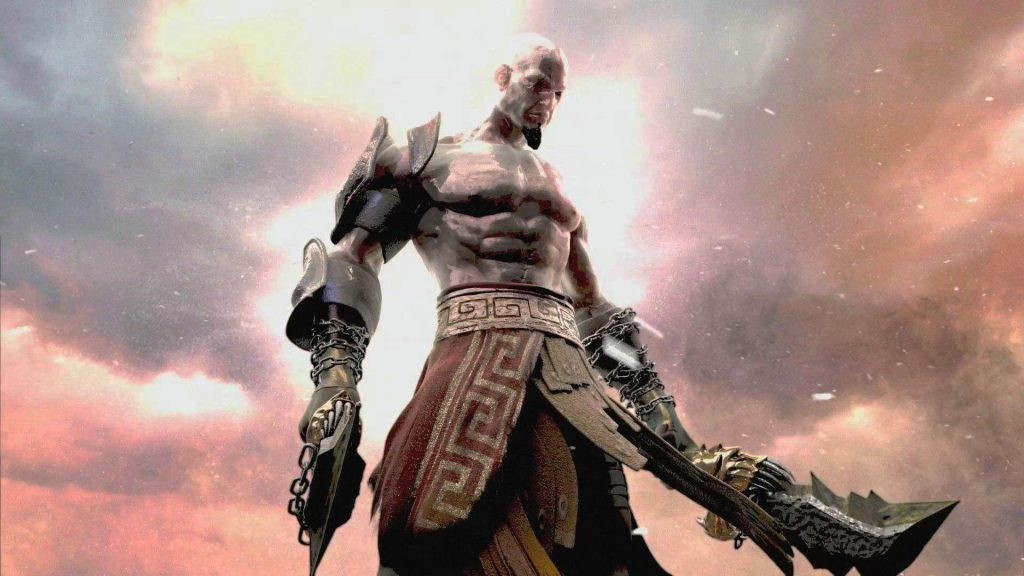
Kratos, haunted by visions of his past, embarks on a quest to uncover the truth about his origins and confront the nightmares that plague him. His journey takes him to the city of Atlantis and the Domain of Death, where he faces formidable enemies and uncovers the dark secrets of his past. As the Ghost of Sparta, Kratos battles gods and monsters alike, seeking redemption and closure in a world gripped by chaos.
Developed for the PlayStation Portable (PSP) and later ported to the PlayStation 3, God of War: Ghost of Sparta is widely regarded as one of the best handheld entries in the series. The game successfully translates the epic scale and intense combat of its console counterparts to the portable platform. Ghost of Sparta boasts impressive graphics, showcasing the capabilities of the PSP. The story is a compelling exploration of Kratos’ personal demons, and the game introduces new weapons, abilities, and enemies to keep the gameplay fresh. Overall, Ghost of Sparta stands as a testament to the technical prowess of the PSP and the ability of the series to deliver a gripping experience on a handheld device.
6. God of War: Chains of Olympus (2008)
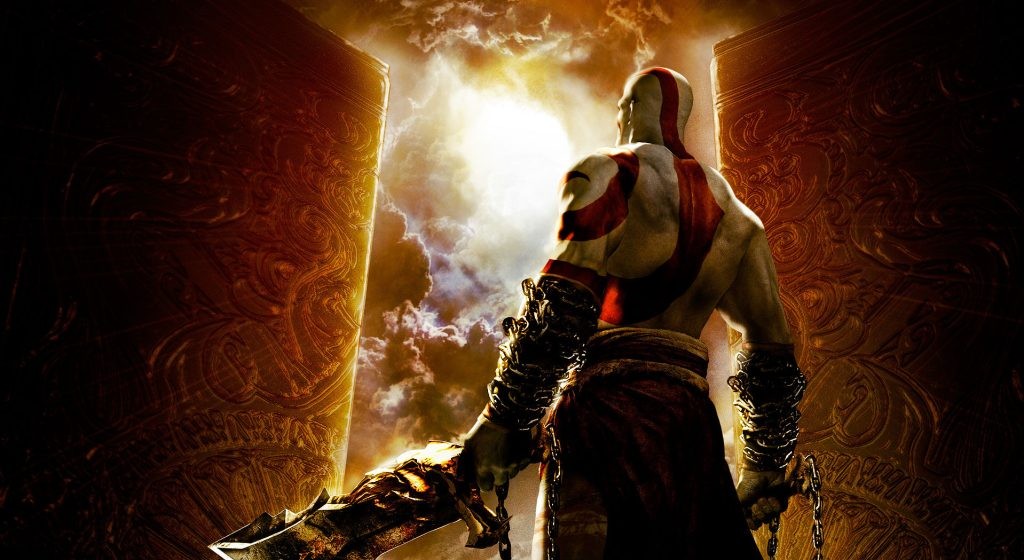
The story unfolds in a time before Kratos becomes the Ghost of Sparta, depicting his service to the gods and his struggles against the Persian army. As Kratos battles monsters, gods, and titans in the city of Attica, he becomes entangled in a plot orchestrated by the goddess Persephone. Throughout his journey, Kratos faces moral dilemmas and personal challenges, setting the stage for the tumultuous path he will later tread in the series.
Beyond being a technical showcase for the PSP, Chains of Olympus proves that handheld gaming can offer an experience on par with its console counterparts. It’s not merely a spin-off; it’s an essential chapter in Kratos’ saga, expanding the narrative in meaningful ways and cementing its place as a cornerstone of the series. Chains of Olympus is a triumph of handheld gaming, successfully translating the essence of the series to a portable platform without compromising its epic scope. With its captivating story, intense combat, and stunning visuals, Chains of Olympus stands tall as not just a handheld gem but an integral part of the God of War legacy.
5. God of War III (2010)
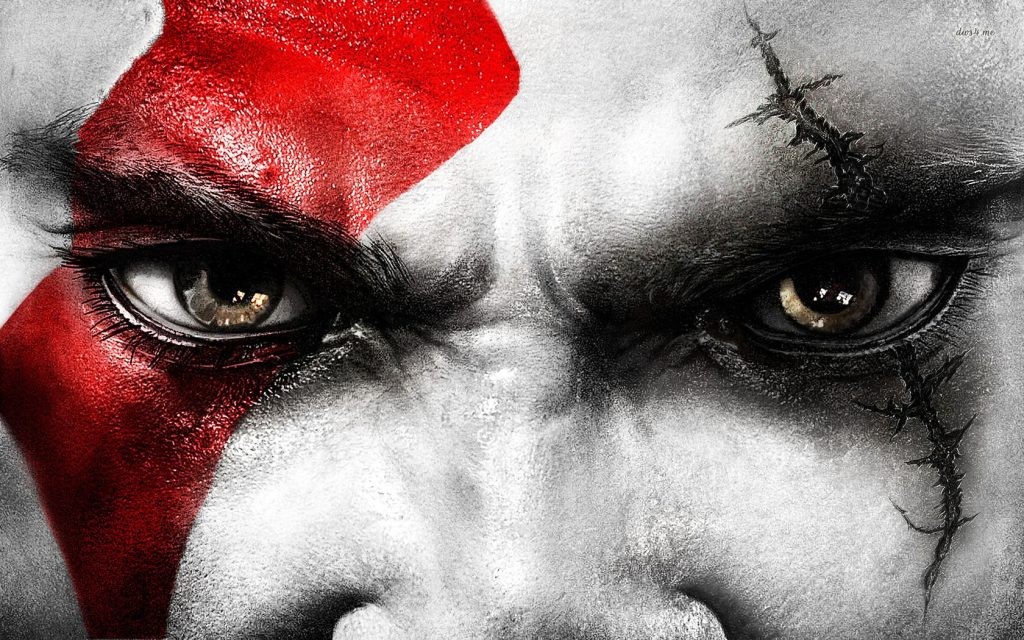
The Ghost of Sparta, armed with the mighty Blades of Exile, Kratos embarks on an epic and relentless quest to destroy Zeus and the other Olympian deities. The journey takes him through breathtaking landscapes, mythical realms, and encounters with iconic figures of Greek mythology. The narrative unfolds with the intensity and vengeance that characterize Kratos, culminating in a climactic showdown that has far-reaching consequences for both gods and mortals.
God of War III not only concludes the original trilogy with a bang but also solidifies Kratos as one of gaming’s most iconic characters. Its impact is felt not only through its technical achievements but also in how it elevated the action-adventure genre, setting a standard for epic storytelling and grand-scale action. With its breathtaking visuals, relentless combat, and a narrative that brims with both tragedy and triumph, God of War III stands as a testament to the creative prowess of Santa Monica Studio and the enduring legacy of the franchise.
Also Read: 3 Avengers Aang Can Easily Beat and 3 Who Would Dominate The Last Airbender in a Fight
4. God of War II (2007)

The saga of Kratos continues as the vengeful Spartan warrior ascends to the throne of Ares, becoming the new God of War. However, the gods of Olympus, fearing his growing power and arrogance, betray Kratos, stripping him of his godhood and casting him to the underworld. Driven by a thirst for revenge, Kratos embarks on a quest to undo his fate and overthrow the gods who betrayed him. His journey spans vast landscapes, mythical realms, and encounters with legendary figures from Greek mythology, leading to a climactic confrontation with the King of the Gods, Zeus himself.
Building on the success of the first game, the sequel refines and expands the gameplay formula. Kratos gains new weapons and abilities, including the iconic Blades of Athena, to dispatch enemies and solve intricate puzzles. The game introduces epic boss battles against colossal creatures and gods, adding a sense of scale and grandeur to the already intense combat. The seamless integration of action, platforming, and puzzle-solving creates a cohesive and engaging gameplay experience. Its success paved the way for the franchise’s continued expansion and set a standard for storytelling, presentation, and gameplay in the action genre. The game’s impact is reflected in its enduring legacy and the critical acclaim it received upon release.
3. God of War (2005)
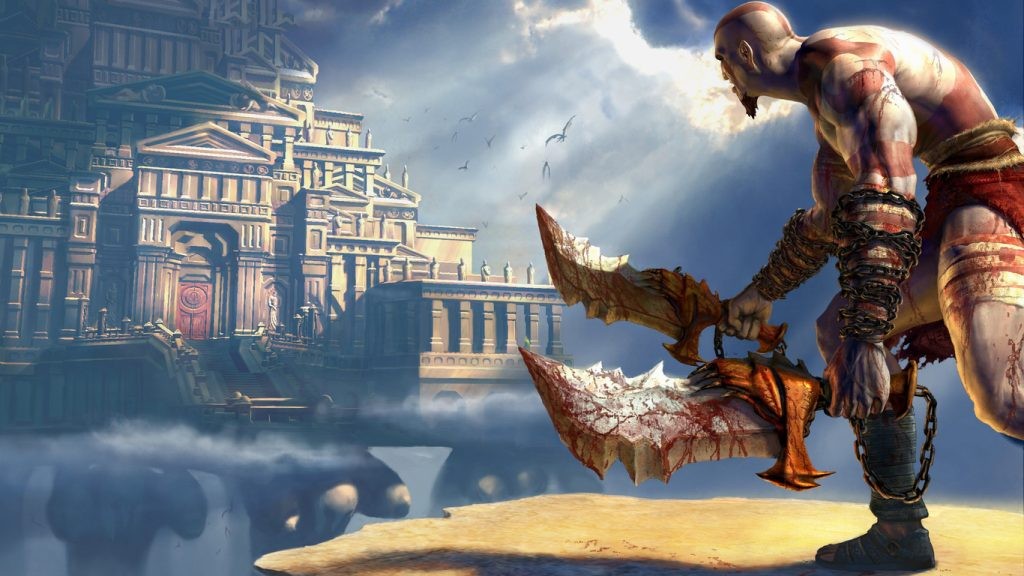
In service to the gods of Olympus, Kratos embarks on a perilous journey to find the mythical Pandora’s Box, a weapon that can grant him the power to defeat the God of War, Ares. As Kratos battles through the hostile landscapes of Greek mythology, he confronts mythical beasts, solves intricate puzzles, and faces the consequences of his own tragic history. The narrative unfolds through a series of flashbacks, revealing the events that led Kratos to his current path of divine warfare.
God of War revolutionized the action-adventure genre with its seamless blend of brutal combat, environmental puzzles, and cinematic storytelling. Kratos wields the Blades of Chaos, twin-chain weapons that become an extension of his wrathful nature. The game’s combat system emphasizes fluidity and brutality, allowing players to execute elaborate combos and finish foes with visceral, finishing moves. God of War is a landmark title that not only defined a genre but also left an enduring legacy in gaming. With its gripping narrative, innovative gameplay, and technical achievements, the game established Kratos as a force to be reckoned with in the gaming pantheon and laid the foundation for the epic odyssey that would unfold in subsequent entries.
2. God of War (2018)
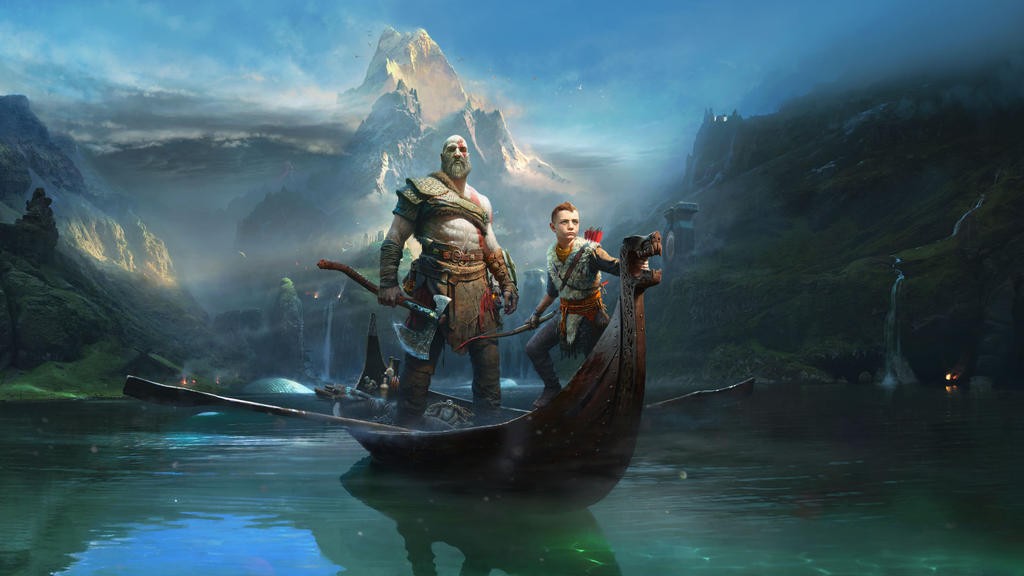
Shifting its focus from Greek to Norse mythology. Kratos, now bearing the weight of his past and the ashes of his deceased wife and child, embarks on a journey with his son Atreus to fulfill his wife’s final wish – to scatter her ashes from the highest peak of the Nine Realms. As they traverse the unfamiliar landscapes, Kratos must confront both his haunted past and the challenges of parenthood. The narrative weaves a tale of gods, monsters, and familial bonds, intertwining the personal struggles of its characters with the epic scope of Norse mythology.
God of War (2018) introduces significant changes to the series’ gameplay dynamics. The fixed, cinematic camera of previous titles is replaced by a dynamic, over-the-shoulder perspective, offering a more immersive and intimate experience. The Leviathan Axe becomes Kratos’ primary weapon, featuring both close-quarters combat and ranged abilities. The game received universal acclaim, not only for its technical achievements but also for its profound storytelling and character development. The game redefined the expectations for narrative-driven action games, exploring themes of redemption, grief, and the complexities of fatherhood. Kratos’ transformation from a vengeful god to a more nuanced and relatable character resonated with both longtime fans and newcomers.
Also Read: Death of the Strongest Hokage after Naruto May be Due to Overusing One of Konoha’s Greatest Jutsus
1. God of War Ragnarök (2022)
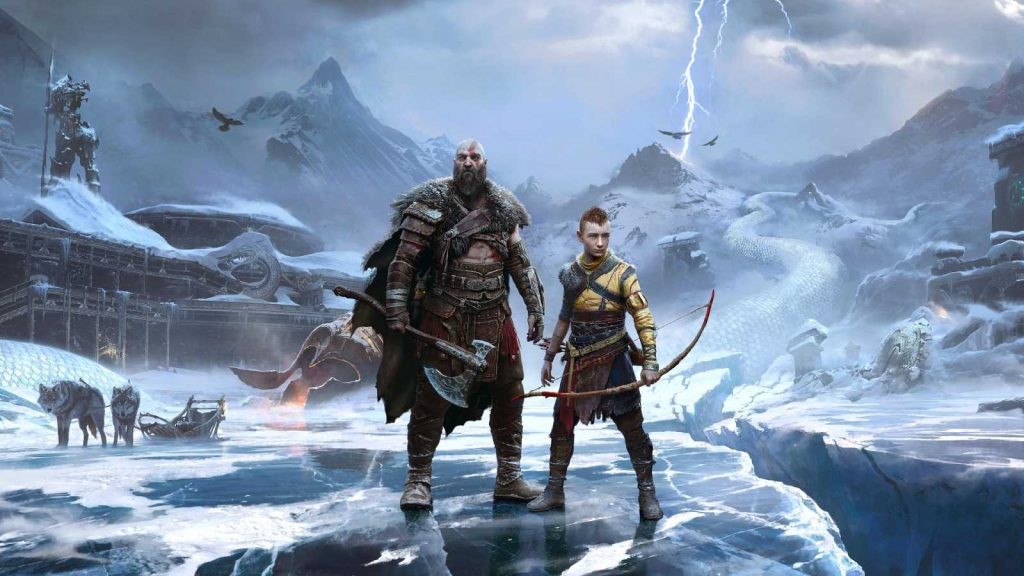
The concluding chapter in the Norse Era. The narrative revolves around Kratos, the formidable God of War, and his adolescent son, Atreus, as they confront the impending Ragnarök. This cataclysmic event is set in motion by Kratos’s fateful act of slaying the Norse God, Baldur. Their journey unfolds against the backdrop of a quest to terminate the tyrannical rule of Odin, the King of Asgard. Simultaneously, Atreus endeavors to unravel the mysteries surrounding his own origins, adding layers of intrigue and personal discovery to the overarching conflict. As father and son navigate the complexities of their divine existence, Ragnarök emerges as the ultimate crucible, testing their resilience and challenging the fate of the Norse realms.
Notably, significant enhancements have been made to the gameplay dynamics. In addition to Kratos’ primary weapons—the magical battle axe and double-chained blades—a magical spear joins his arsenal. Furthermore, his shield has undergone a transformation, offering increased versatility with various shield types featuring distinct offensive and defensive capabilities. In a departure from tradition, Kratos’ son Atreus and certain other characters actively participate in combat, providing valuable assistance and allowing passive control. Breaking new ground for the series, certain story missions grant players full control of Atreus, whose gameplay mirrors Kratos’s style, albeit wielding a magical bow as his weapon. The game introduces a broader array of enemy types and mini-bosses compared to its predecessor.
Follow us for more entertainment coverage on Facebook, Twitter, Instagram, and YouTube.

